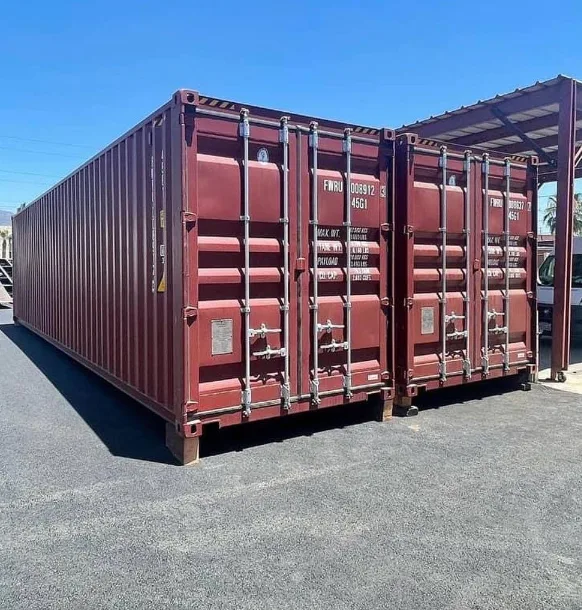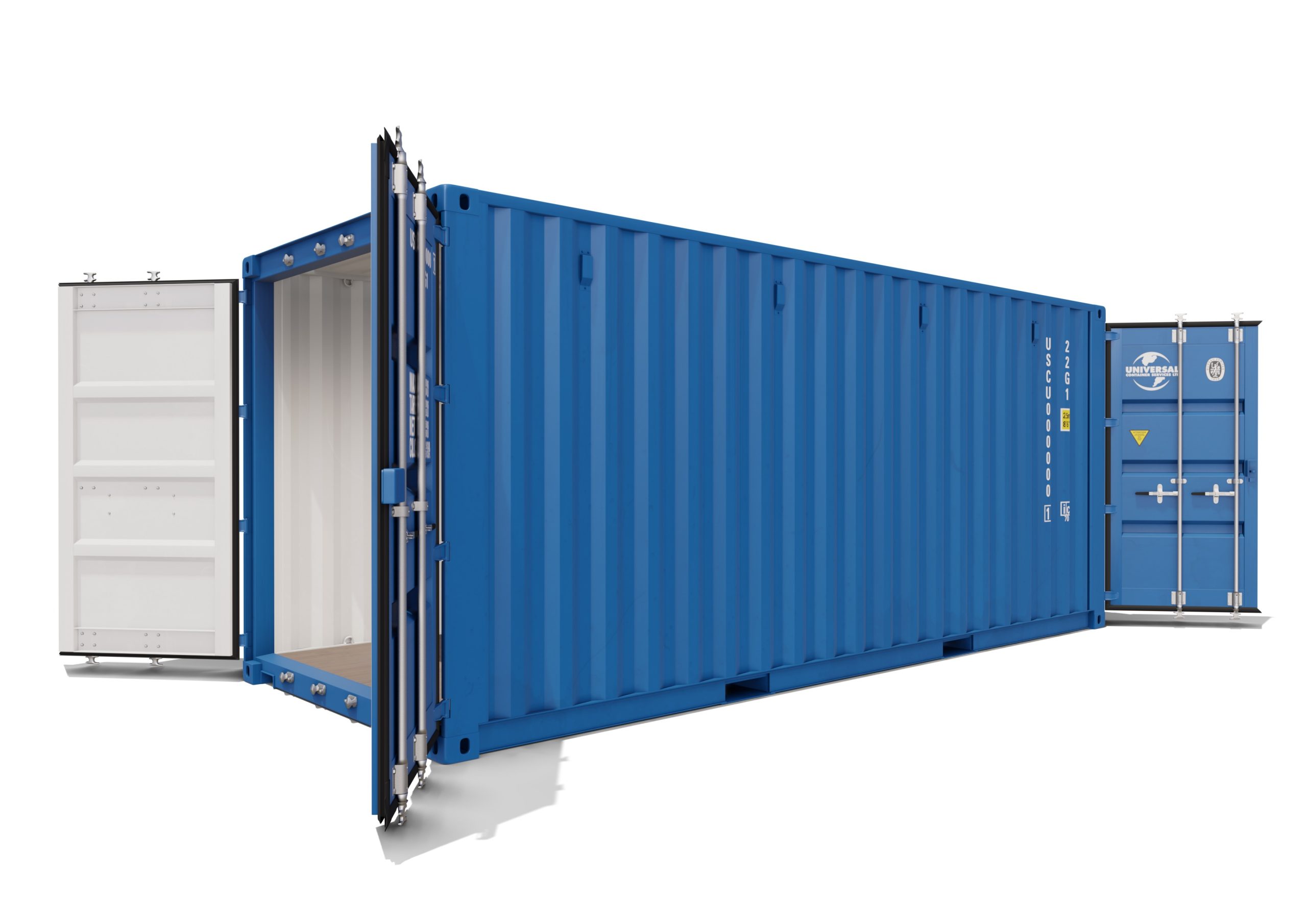8 Innovative Ways to Use a New Shipping Container 40 x 8 x 9.6 for Custom Workspaces
8 Innovative Ways to Use a New Shipping Container 40 x 8 x 9.6 for Custom Workspaces
Blog Article
The Ultimate Overview to Selecting the Right Delivery Container for Your Needs
When it comes to choosing the right shipping container, understanding your particular requirements is necessary. You'll intend to think about variables like dimension, kind, and product to guarantee you make the most effective selection. From standard sizes to specialized choices, there's a great deal to discover. And also, budgeting for both the container and any adjustments can make a big difference. Allow's break down the key elements to aid you discover the ideal suitable for your demands.
Understanding Shipping Container Sizes
When you're picking a shipping container, understanding the different sizes available is important for making the right choice. Delivering containers usually are available in standard sizes of 20 and 40 feet, however you'll likewise discover various other measurements. Recognizing the size you require depends on what you intend to store or transport.If you're relocating smaller sized things, a 20-foot container may be ideal, while bigger deliveries usually call for a 40-foot container. The elevation can also vary; high cube containers offer added vertical area, which can be valuable for taller goods.Before making a decision, gauge your cargo, and take into consideration just how much area you'll need for loading and dumping. Constantly consider possible future requirements-- opting for a somewhat larger container may conserve you inconvenience down the line. Ultimately, picking the best size will certainly improve effectiveness and assure your items are protected during transportation
Sorts Of Shipping Containers Available
There are a number of sorts of delivery containers offered, each made for certain functions and cargo demands. The standard dry container is flexible, perfect for basic cargo. If you're delivering disposable goods, take into consideration a cooled container, which maintains a regulated temperature. For oversized products, high cube containers use extra height, suiting taller loads.If you need to deliver heavy equipment or equipment, flat shelf containers provide a strong base without walls. Open-top containers allow for easy loading of tall cargo, with a removable tarp covering for defense. If you're looking for flexibility, think about a collapsible container that can be easily stored when not in use.Lastly, specialized containers like container containers are made use of for liquids, while vented containers are designed for bulk freight that needs air flow. Understanding your freight type will certainly help you pick the ideal container to satisfy your shipping needs efficiently.
Material Factors To Consider for Durability
When selecting a delivery container, the material plays an important duty in its longevity. You'll desire to weigh the benefits of steel versus light weight aluminum, specifically concerning rust resistance. Recognizing these factors can aid you make a much more enlightened option for your delivery requires.
Steel vs. Aluminum Containers
Just how do you choose in between steel and light weight aluminum containers for your shipping needs? Start by considering longevity. Steel containers are durable and offer excellent stamina, making them ideal for hefty loads and severe problems. They stand up to damage from influences and are usually more economical, which can be a significant aspect for budget-conscious buyers.On the various other hand, light weight aluminum containers are light-weight, which can conserve you on shipping expenses. They're much easier to maneuver and are an excellent selection if you require to deliver products frequently. Nonetheless, aluminum is generally more costly and less robust than steel. Consider your specific needs meticulously, including weight, expense, and the kind of freight you'll be delivery, to make the ideal choice for your situation.
Corrosion Resistance Factors
Selecting the ideal product does not just entail weight and expense; corrosion resistance plays a significant duty in durability. When choosing a delivery container, think about the setting it'll encounter. Steel containers, while solid, can rust if not properly treated. Search for options with protective coatings or galvanization to improve their lifespan. Aluminum, on the other hand, uses natural corrosion resistance, making it optimal for coastal areas or damp conditions. It can be more expensive. Additionally, assess the container's usage-- if it'll be revealed to chemicals or harsh weather condition, focus on materials that can endure these problems. Buying a corrosion-resistant container currently can save you from expensive fixings or replacements down the line. Pick wisely for lasting advantages.
Alterations and Personalization Options
Shipping containers aren't just for transporting products; they can be transformed to meet your specific needs through different modifications and customization options. You can transform a standard container into a comfy office, a temporary retail store, or perhaps an individual gym. The possibilities are nearly endless.Think about including windows, insulation, or ventilation to improve convenience. You may also consider electric wiring, plumbing, and even custom-made shelving to improve performance. If security's a problem, strengthened locks can supply tranquility of mind.For aesthetic allure, you can repaint the container or add an unique design to make it stand out. Do not forget flooring options-- whether you desire long lasting plywood or something much more innovative, it can raise the space.Ultimately, customizing your delivery container to fit your demands can improve usability and produce an unique setting that shows your design.
Examining Your Transportation Requirements
When it comes to using your modified delivery container, understanding your transportation requires is key. Beginning by identifying what you'll be delivery-- whether it's heavy devices, retail products, or individual products. Each kind of freight has different needs relating to size, weight, and accessibility.Next, think about the range and mode of transport. Are you shipping in your area, nationally, or globally? This influences the container's design and performance. If you're using trucks, ensure your container fits basic dimensions for very easy loading and unloading.Additionally, think of transit conditions. Will your products require unique security from weather or temperature changes? If so, you may require insulation or air flow features in your container.Lastly, examine just how frequently you'll be carrying items. Constant deliveries may require a more resilient and flexible container to satisfy ongoing demands. By addressing these elements, you'll be well-prepared to select the best shipping container for my review here your requirements.
Budgeting for Your Shipping Container
Setting an allocate your delivery container is crucial for ensuring a smooth acquiring process. Establish just how much you can pay for to spend. Costs can vary considerably based on dimension, condition, and kind. New containers normally cost much more, however made use of ones can Find Out More use substantial savings.Next, consider any kind of added expenses you could sustain, such as transportation fees, delivery costs, and alterations. If you intend to personalize the container, consider those expenses also. Research study different providers to compare costs and find the very best bargain that meets your needs.Don' t forget to consist of any type of permits or laws that might apply to your acquisition and use the container. By clearly detailing your budget plan, you'll be much better prepared to make enlightened decisions, guaranteeing you get the right container without damaging the bank.
Upkeep and Take Care Of Longevity
To assure your shipping container lasts for several years, routine upkeep is crucial. Start by evaluating the exterior for corrosion, dents, and damages. If you find any kind of problems, resolve them quickly to stop additional deterioration. Clean the container occasionally, both throughout, to get rid of dirt, particles, and dampness that can cause corrosion.Ensure the doors secure correctly and oil the hinges to prevent corrosion and sticking. If you're using the container for storage space, think about including ventilation to decrease moisture and mold and mildew growth. For additional security, apply a rust-inhibiting paint or sealer annually.If your container's situated in a severe atmosphere, like seaside areas, you may require to increase maintenance frequency. Watch on the floor covering, too; any type of indications of wear need to be fixed as soon as possible. With these simple steps, you'll extend the life of your shipping container substantially.
Regularly Asked Concerns
Just how Do I Find a Dependable Delivery Container Vendor?
To locate a dependable shipping container vendor, begin by looking into on-line testimonials, requesting for referrals from friends or market get in touches with, and contrasting prices. Always check their credentials and guarantee they provide high quality containers that meet your needs.

Can I Rental Fee a Delivery Container Instead of Acquiring?
Yes, you can most definitely rent a delivery container rather of acquiring one. Several vendors offer rental options, which can conserve you cash and supply versatility if you only need it for a short duration.
What Allows Are Needed for Container Placement?

Are Shipping Containers Weatherproof and Suitable for Outdoor Storage?
Yes, delivering containers are typically weatherproof, developed to stand up to rough problems. Their durable building and construction keeps your products safe and dry, making them appropriate for outside storage. Just guarantee proper air flow to protect against dampness buildup inside.
How Do I Carry a Shipping Container When Purchased?

Report this page